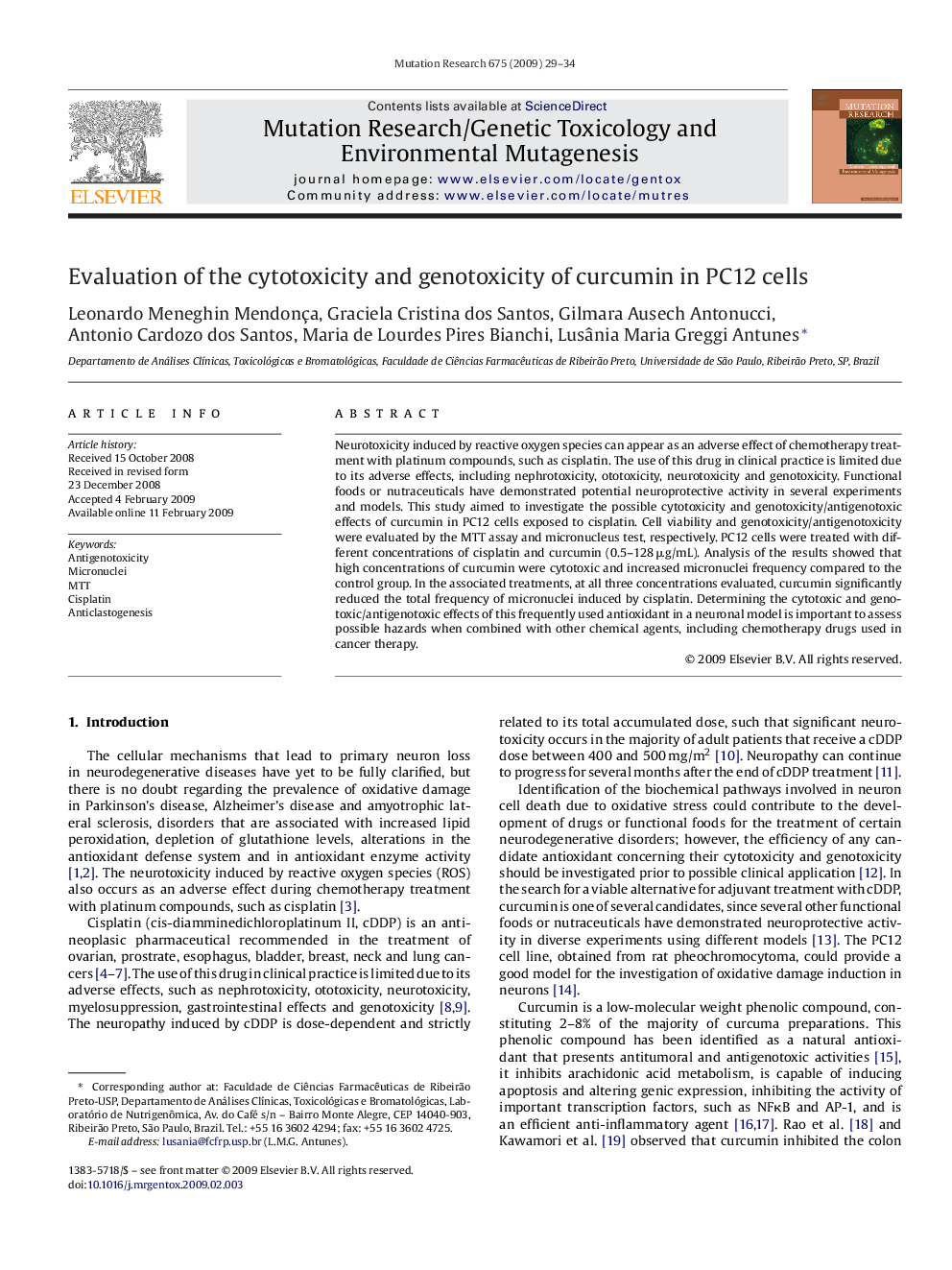| Article ID | Journal | Published Year | Pages | File Type |
|---|---|---|---|---|
| 2148827 | Mutation Research/Genetic Toxicology and Environmental Mutagenesis | 2009 | 6 Pages |
Neurotoxicity induced by reactive oxygen species can appear as an adverse effect of chemotherapy treatment with platinum compounds, such as cisplatin. The use of this drug in clinical practice is limited due to its adverse effects, including nephrotoxicity, ototoxicity, neurotoxicity and genotoxicity. Functional foods or nutraceuticals have demonstrated potential neuroprotective activity in several experiments and models. This study aimed to investigate the possible cytotoxicity and genotoxicity/antigenotoxic effects of curcumin in PC12 cells exposed to cisplatin. Cell viability and genotoxicity/antigenotoxicity were evaluated by the MTT assay and micronucleus test, respectively. PC12 cells were treated with different concentrations of cisplatin and curcumin (0.5–128 μg/mL). Analysis of the results showed that high concentrations of curcumin were cytotoxic and increased micronuclei frequency compared to the control group. In the associated treatments, at all three concentrations evaluated, curcumin significantly reduced the total frequency of micronuclei induced by cisplatin. Determining the cytotoxic and genotoxic/antigenotoxic effects of this frequently used antioxidant in a neuronal model is important to assess possible hazards when combined with other chemical agents, including chemotherapy drugs used in cancer therapy.
